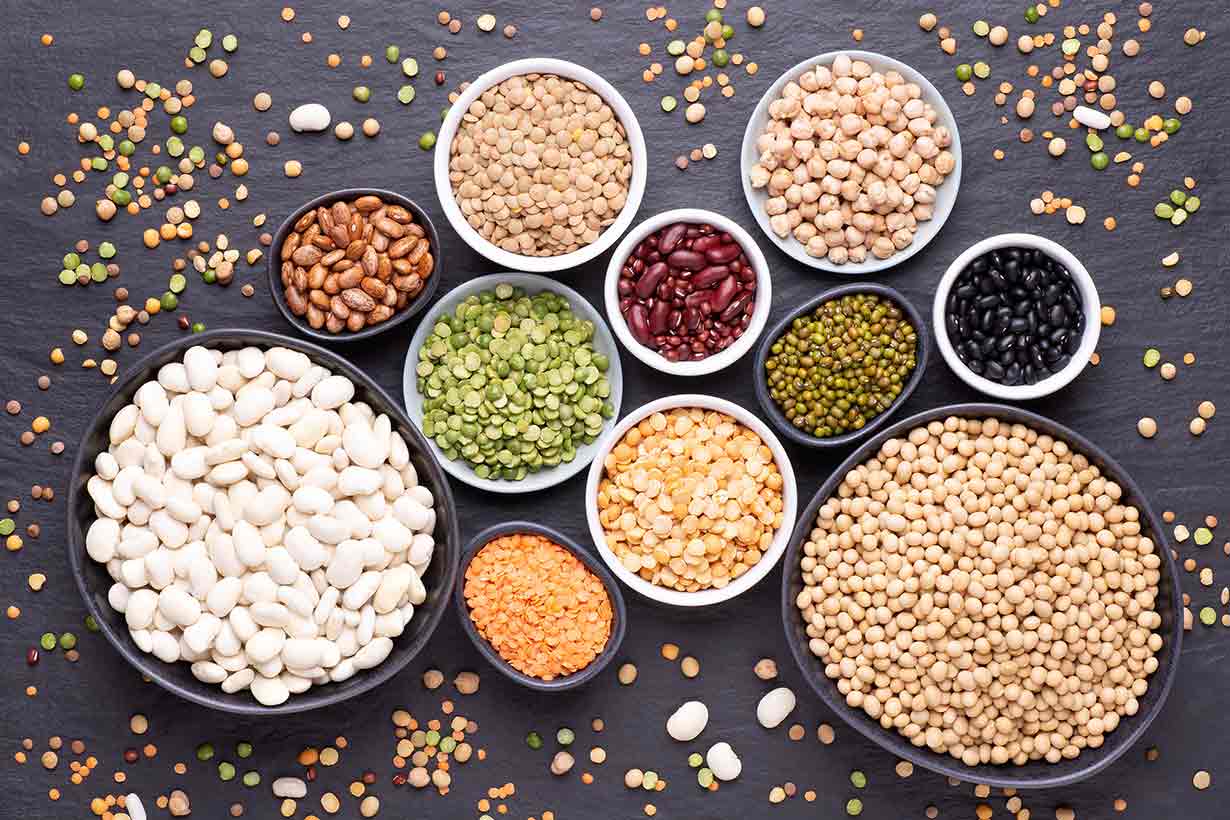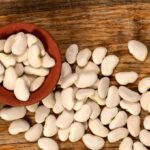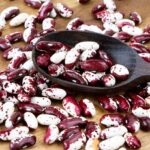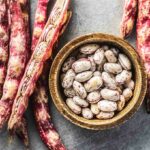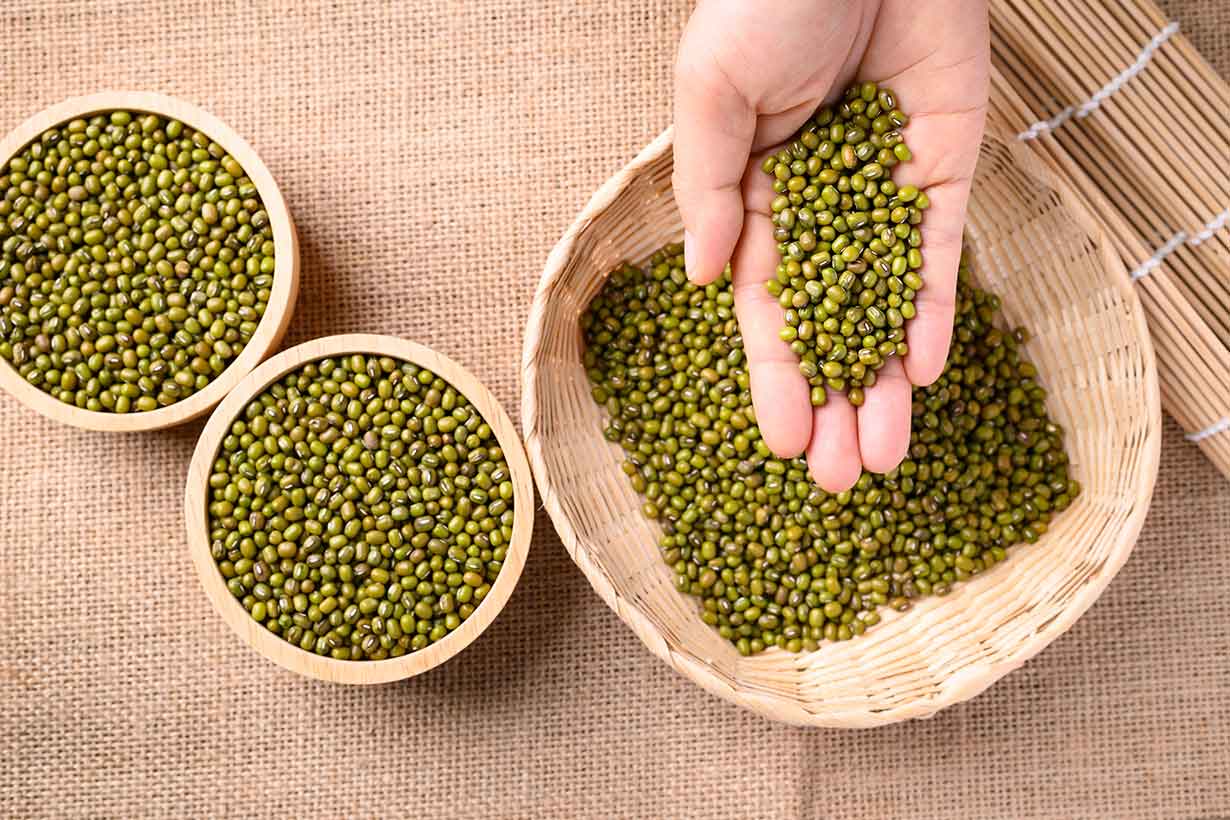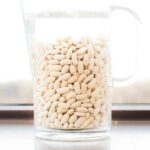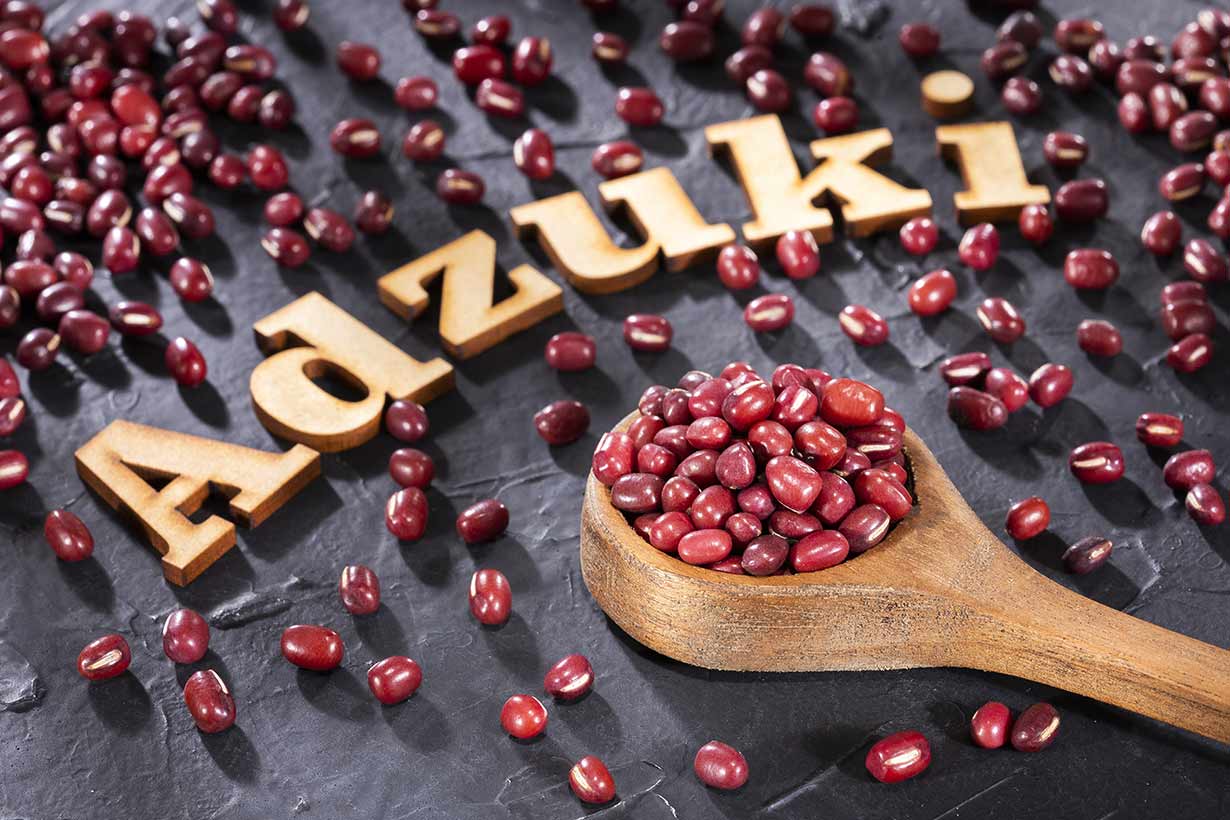Black turtle beans are a popular legume used in dishes around the world.
This article looks at some potential benefits of black turtle beans and their complete nutritional properties.
Table of contents
What Are Black Turtle Beans?
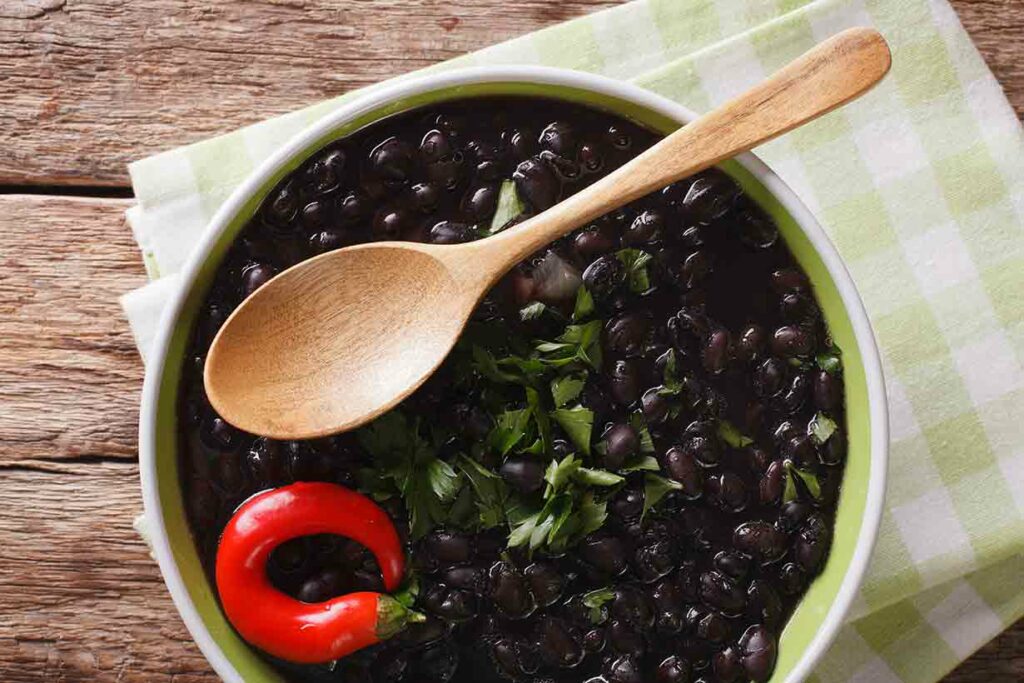
Black turtle beans are commonly known as ‘black beans’ and have the scientific name Phaseolus vulgaris. They belong to the legume family of plants (Fabaceae) (1).
Although they now grow throughout the world, black turtle beans are native to the Americas.
These beans play a prominent role in Mexican cuisine and are known by the Spanish term ‘frijoles negros.’
Nutritionally, black turtle beans combine a beneficial package of protein, fiber, and high levels of several essential vitamins and minerals. In this regard, they are similar to other legumes, such as chickpeas, moth beans, and adzuki beans.
Benefits of Black Turtle Beans
Here is a summary of the primary benefits of black turtle beans.
High In Protein
Black turtle beans offer a good source of protein and are one of the highest-protein plant foods.
The list below shows how much protein different servings of the beans provide:
- 21.2 grams of protein per 100 grams, raw weight (2)
- 39 grams of protein per 184-gram cup, raw weight (2)
- 8.18 grams of protein per 100 grams, cooked weight (3)
- 15.1 grams of protein per 185-gram cup, cooked weight (3)
Combining the beans with a different protein source, such as meat, fish, whole grains, or other legumes, can form a very protein-rich meal.
Rich In Fiber
In addition to protein, black turtle beans also supply significant dietary fiber content.
Here are the amounts of fiber that various serving sizes of the beans provide:
- 15.5 grams of fiber per 100 grams, raw weight (2)
- 28.5 grams of fiber per 184-gram cup, raw weight (2)
- 8.3 grams of fiber per 100 grams, cooked weight (3)
- 15.4 grams of fiber per 185-gram cup, cooked weight (3)
Interestingly, observational research consistently demonstrates that individuals with higher fiber intake have a lower risk of cardiovascular and all-cause mortality (4, 5, 6).
Additionally, the average American only consumes around 50% of the recommended fiber intake (7).
The recommended daily value for fiber, based on a 2000-calorie diet, is 28 grams daily. Thus, foods like black turtle beans are a helpful way to come closer to meeting this fiber intake.
For an even higher fiber legume, see this guide to cannellini beans.
A Significant Source of Folate, Magnesium, and Potassium
Among the numerous essential nutrients they contain, black turtle beans provide high amounts of folate, magnesium, and potassium.
Notably, it appears that a considerable number of people may have an insufficient intake of these three nutrients:
- A systematic review of global folate intake in women of reproductive age found that over 11 surveys, folate insufficiency rates were >40% in most countries. Additionally, outright folate deficiency was >20% in countries with lower-income economies. Conversely, outright deficiency rates were under 5% in countries with higher-income economies (8).
- Based on data from 2005-2006, 48% of the United States population had magnesium intakes below recommended levels (9). Unfortunately, no newer data on magnesium status in the United States exists.
- The Dietary Guidelines for Americans, 2020-2025, consider potassium a ‘dietary component of public health concern.’ In other words, the population does not consume enough dietary potassium (10). Based on 24-hour urine collection data from the National Health and Nutrition Examination Survey (NHANES), the average potassium intake was only 1997 mg per day (11). The current recommended daily value for potassium (4,700 mg per day) is more than double this intake level (12).
Magnesium and potassium play an essential role in blood pressure regulation and numerous other vital functions (13).
Folate has many functions, including an essential role in DNA production. Also, folate is particularly important during pregnancy for helping to prevent complications and premature delivery (14).
Black Beans Have a Low Glycemic Index
The glycemic index of foods helps to predict how significantly a particular food will increase blood glucose levels.
Based on a rating of 1 (low) to 100 (high), the glycemic index compares each food to pure glucose, rated at 100.
However, the glycemic index alone does not tell the whole story. For instance, the glycemic index only predicts the varying glycemic effect of foods when they have equivalent carbohydrate levels.
The glycemic load considers the total carbohydrate level and the glycemic index to better predict the actual impact on blood glucose. We can calculate the glycemic load by multiplying the glycemic index by the number of carbohydrates in a serving of the food and then dividing it by 100.
According to the International Tables of Glycemic Index and Glycemic Load Values, black beans have a glycemic index of 30. Additionally, the glycemic load is a very low 7 (15).
Research demonstrates that adding black beans to higher glycemic foods helps to lower the subsequent blood glucose response.
For example, randomized trials show that consuming black beans alongside white rice significantly lowers the glycemic response compared to white rice alone (16, 17).
Black Beans May Lower Blood Pressure
Some research suggests that black beans may play a beneficial role in lowering blood pressure.
Firstly, a 2014 systematic review and meta-analysis of human trials published in the American Journal of Hypertension looked into the effect of dietary pulses on blood pressure (18).
The review found that dietary pulses, such as beans, significantly lowered blood pressure when exchanged for other foods as part of a calorie-matched diet.
Also, a recent 2021 pilot randomized cross-over trial examined black turtle beans’ effect on vascular responses (19).
Among its findings, this pilot trial found that black bean consumption increased vasorelaxation and decreased various measures of arterial stiffness compared to rice and white beans.
Additionally, LDL cholesterol levels were lower six hours after consuming black beans than after rice.
However, it is important to note that this pilot trial was small and only involved eight participants. This being the case, more extensive research trials are necessary to confirm these findings.
Nutrition Facts
The following table and nutrient lists show the full nutritional values for cooked black turtle beans per 185-gram cup.
The source of all nutritional data is the USDA’s FoodData Central database. Daily values (% DV) have been calculated using the USDA data and the FDA’s recommended daily values (3, 20).
| Name | Amounts | % Daily Value |
|---|---|---|
| Calories | 240 kcal | |
| Carbohydrates | 45.1 g | 16.4% DV |
| Fiber | 15.4 g | 55% DV |
| Sugars | 0.59 g | |
| Fat | 0.65 g | 0.8% DV |
| Saturated Fat | 0.17 g | 0.9% DV |
| Monounsaturated Fat | 0.06 g | |
| Polyunsaturated Fat | 0.28 g | |
| Omega-3 | 0.13 g | |
| Omega-6 | 0.15 g | |
| Protein | 15.13 g | 30.3% DV |
Vitamins
- Folate: 39.8% DV
- Thiamin (B1): 35% DV
- Choline: 11.0% DV
- Vitamin E: 10.7% DV
- Pantothenic acid (B5): 9.6% DV
- Vitamin B6: 8.2% DV
- Riboflavin (B2): 7.7% DV
- Niacin (B3): 6.1% DV
- Vitamin K: 5.1% DV
- Vitamin K: 5.1% DV
Black turtle beans provide a large amount of folate and thiamin. They also offer a range of vitamins in small to moderate concentrations.
Minerals
- Copper: 55.6% DV
- Iron: 29.3% DV
- Manganese: 26.1% DV
- Phosphorus: 22.5% DV
- Magnesium: 21.6% DV
- Calcium: 18.5% DV
- Potassium: 17.0% DV
- Zinc: 12.8% DV
- Selenium: 4.0% DV
- Sodium: 0.2% DV
Black turtle beans are a mineral-rich legume, and a cup serving provides more than 10% of the daily value for copper, iron, manganese, phosphorus, magnesium, calcium, potassium, and zinc.
Phytonutrients
Black beans contain a significant range of polyphenols, particularly anthocyanins and various phenolic acids (21).
Other
In their dry form, black turtle beans have a water content of 11% (2).
How To Use Black Turtle Beans
It is possible to buy dried black turtle beans to cook at home or pre-cooked canned beans.
While the dried form provides better value for money, canned black beans have a much quicker cooking time.
For instance, dried beans may take around an hour to cook, but canned black beans only need reheating for around 5 minutes.
Once black turtle beans have been properly cooked, it is possible to use them in various ways:
- Alone as a side
- In curries and stir-fries
- Add them to soups and stews
- On a salad
- Mash them with some salt and olive oil
Final Thoughts
Black turtle beans are a tasty and nutritious legume that provides an excellent source of fiber, protein, vitamins, and minerals.
Adding these versatile beans to a dish is a simple way to increase the meal’s nutritional value.

